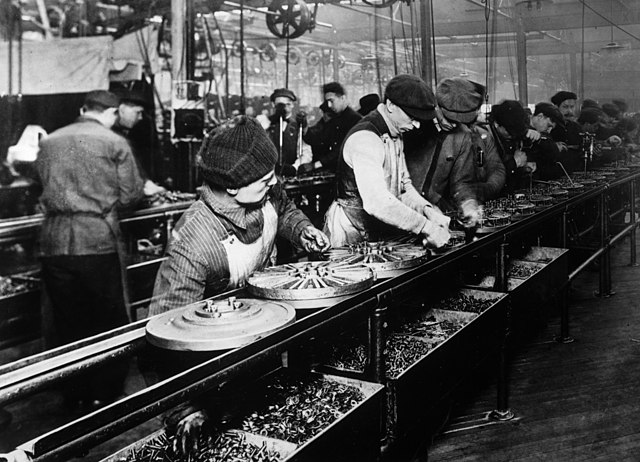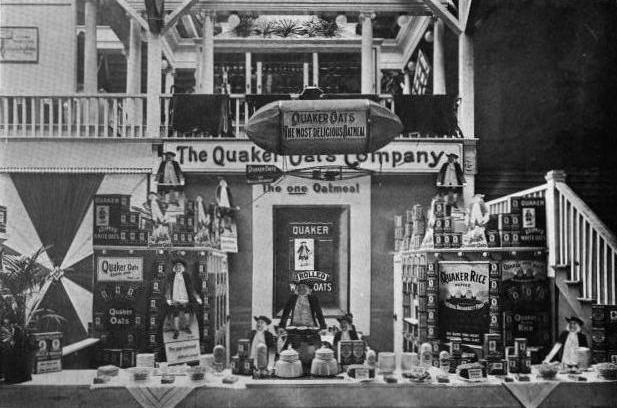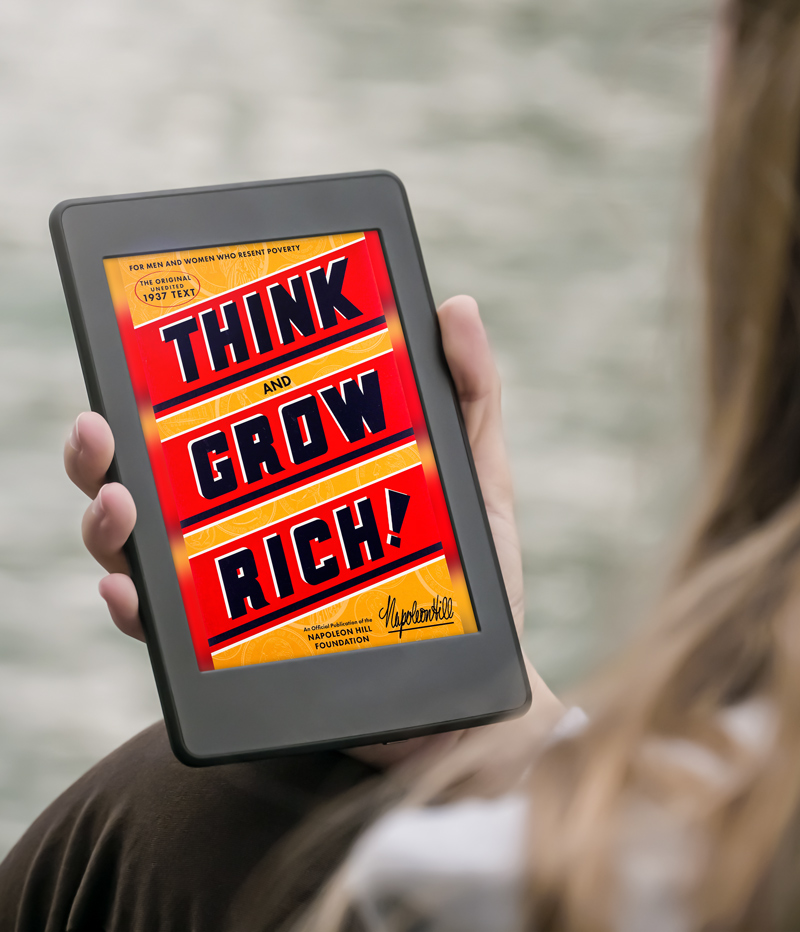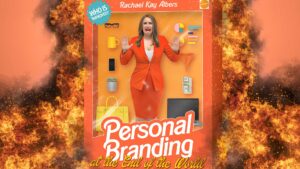"When are you going to teach a course on ethical marketing, RKA???”
I get this a lot. And I don’t know. Never say never but I think my challenge with a “course” on this comes down to the “scaling” of ethics.
I work best 1:1 or in a small group setting because I can then adjust the conversation around the lived experiences, perspective, and priorities of each person I’m collaborating with vs. issuing commandments from a mountaintop.
And the deeper I go into my research on the history of branding and how our modern business practices evolved over the last few centuries, the more I understand why the intimate approach feels right to me.
I may not be teaching that course anytime soon, but I am writing this blog today, so I'll go ahead and tell you one mindset that I believe is at the core of communicating with clients “ethically” — at least according to my own principles:
Ethical marketing is a long game.
When I start to expand on this into the elements that make marketing effective — trust building is a long game, relationship building is a long game, reputation building is a long game — the keyword is “building.” (And “making” if you add in decision-making.)
Marketing is about building. Marketing is about making.
Building trust. Making memories.
A brand is a memory.
Brands live in the minds of their customers and audiences. That’s why branding is so tricky. It’s not as easy as telling people what to think, it’s about making memories with them. As I wrote in my essay last month, Brands, Self-Help, and the Art of Caring What Other People Think:
"Your brand is what people remember about you, based on a complicated mess of factors — what they’ve experienced, felt, heard, read, and seen — that ultimately becomes a paint splattered memory that people like me neatly fold up into a five letter word."

I find that when people start to see marketing as “making memories” with people, the process feels less icky. But it also reinforces the philosophy that ethical marketing is a long game.
Because if we agree that marketing is about making and building, then we also have to agree that building anything solid and sustainable, whether it’s a house, a relationship, or a business, takes time.
These aren’t sexy words in the marketing industry — we tend to see things phrased in terms of converting, hacking, accelerating, optimizing, and — oh hey, there’s that word again — scaling.
Branding and scaling have historically gone hand in hand.
When customer-facing brands first came on the scene in America, following the Industrial Revolution, how we bought and sold was changing dramatically.
Industrialists defined the “progress” of the Machine Age by how new technology replaced making with mass production. What had once taken a person days or weeks to make could now be produced in a factory in hours or minutes. And large-scale industry needed large-scale communication.
People were used to buying from people — local makers or merchants they knew by name and had built trust with over time.
If you were living in late 19th century America, you probably made most of your own stuff. If you needed something you couldn’t make yourself, you bought it from (or bartered with) its maker or you went to the general store and relied on the shopkeeper to give you the best item in a given category.
Now that factories were churning out goods in huge quantities, businesses had to scale how they communicated with customers about these goods. Companies found that people were less apt to trust a product on the shelf with an unfamiliar brand name. Advertising allowed businesses to link their products in a customer’s mind with memories and feelings instead of just product names.


But the goal of advertising was also to replace the relationship that people had with the makers and merchants they had come to trust. That’s why brands started adding human faces to their labels and telling stories in their ads. People weren’t comfortable buying from faceless brands. Branding was about approximating and accelerating the sense of relationship between product and consumer.
Early adman Theodore MacManus proclaimed:
“Good reputation can be generated, as it were, overnight.”
Marketers learned how to mass-produce reputation like factories mass-produced goods.
We tend to view the steam engine, the printing press, and the assembly line as the most impactful inventions of the Machine Age, but advancements in social engineering — the inventions of influence — did as much to change human society as the machines they served. (See my deep dive on propaganda for more on the history of how marketers “scaled” the manufacture of public opinion in WWI and how that affected advertising as we know it today.)
More goods produced faster, meant more customers had to be produced faster, too. When Theodore MacManus’ promised to help brands generate reputation “overnight,” he was ultimately saying: “Industrialists mechanized making, advertisers mechanize trust. You produce the goods. We’ll produce the customers.”
The “ethics” of scaled production are that anything that can be done faster, should be done faster, whether it’s making goods or building trust.
But “faster” has its costs. Factories pollute. Assembly lines dehumanize. Marketing manipulates. When machines “scaled” building and making around the ethics of “more!” and “faster!” it came at a tremendous human price.
Today, you don’t need to be a factory magnate to run a business based on scaled production. Dropshipping makes it possible to run a sweatshop from your sofa — you do the selling, someone else does the making, and you never set foot in a factory.
In the digital world, goods aren’t mass produced, customers are. A digital offering meant to be scaled “one to many” applies the dictates of “more!” and “faster!” to how many people click “Buy now!”
In both scenarios, “scaled” business also means scaling the divide between human beings. We are disconnected from who makes our goods and how. We are equally disconnected from who buys from us and why.

When critics of capitalism describe this economic system as putting “profit over people,” this is what they mean.
People aren’t people in this system. They’re consumers, leads, prospects, conversions. Producers, workers, employees, assets. Their value is defined by how much and how quickly they produce and how much and how quickly they buy. The human experience has been mechanized.
When people come to me for marketing advice and want to know how to see “more!” sales “faster!” what they’re asking for, without realizing, is this mechanized approach to relating to other human beings for the sake of profit. Marketing does the relating for us. And most of the marketing “hacks” that produce “more!” results “faster!” are about artificially accelerating the long process of building trust.
We tend to see scaling as the ultimate goal of a successful business.
Of course I understand why. It’s the same reason why people built machines to make things in minutes that once took months. We’re tired. We’re overworked. We’re stressed about financial security. We want to get off the hamster wheel of making and building so we can get back to living. And many of us want to help more people.
But there are hidden costs to scaling everything.
In the case of mass production, making “more!” stuff “faster!” costs the environment, costs people working in factories, costs us the human connection between makers and buyers — turning us all into producers, consumers, and unwitting investors in our own demise.
In the case of digital offerings like eBooks or courses, where teachings once delivered human to human are then tweaked to reach thousands of people at a time — one to many — scaling up your business model in this way often means scaling down results. One size rarely fits all. (But it certainly makes a lot of money.)
In some cases, like eBooks, we are willing to assume this cost as consumers. We pay $8.49 and know that even if our Kindle says Think And Grow Rich, we may not see those results by the time we finish the last chapter.
But in the case of courses or programs priced into the thousands and delivered to thousands of people at once — where the number of people achieving the promised results is scaled down dramatically while the “teacher” profits exorbitantly — the “student” assumes that cost and only realizes later that when they clicked “Buy now!” they agreed to the fine print of “results not typical.” Too distracted by marketing designed to “generate reputation overnight,” as MacManus put it, they don't see the asterisk until it's too late.

Of course, the teacher pays, too. They pay with an increasingly foggier understanding of their students. They pay with an overinflated sense of impact. They pay with negative reviews. (Or in lawyer’s fees to wipe those reviews from the Internet, if like Marie Forleo, they have a non-disparagement clause built into their Terms & Conditions.)
But most consider their profits enough to compensate for all that. It’s just “the cost of doing business.”
These hidden costs are ultimately why I struggle to put “ethical” and “marketing” in the same sentence with “more!” and “faster!”
(And why I don’t see myself scaling a course on this topic anytime soon.)
Ethical marketing is a long game.
If we want to treat people like people, honor their agency, and build trust instead of mechanizing it, then time is a necessary cost of doing business.
And this time spent building trust is a two way street. It’s not just that people need time to get to know a business before they spend. But the people behind a business need to invest their time in getting to know the humans they help. And because humans are not machines — we are always changing and adapting to the world around us — to run an “ethical” business means to continue spending time with, understanding, listening to, and connecting with the people paying us.
The “faster!” we accept that marketing in an ethical way is a long game, the “more!” time we can devote to honoring the people who also happen to be our customers.
p.s. Sick of business newsletters that have all The Answers™? Well, I've got nothing but questions. For more marketing muckraking and brand strategy gone wild, sign up for my emails here:
If you liked this, read on:
In many ways, it seems easier to become a “personal brand” version of yourself than to be yourself. Brands are built on simplicity. A “good”…
Read More...Rebrand TOO MUCH to SO MUCH. Instead of saying, “She’s TOO MUCH,” say, “She’s SO MUCH.” You’re welcome. Lessons on burning it all down…
Read More...In 2021, I started a business / art experiment called FREE SCHOOL. I didn’t know at the time that this school would teach me to free myself. What happens after you burn it all down?
Read More...

